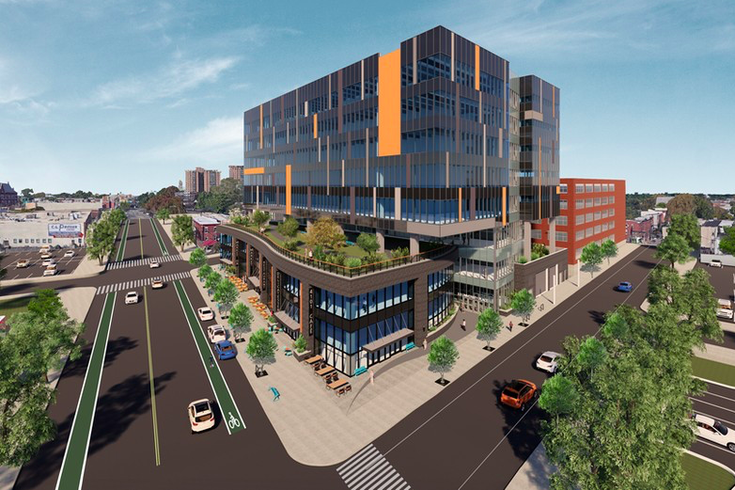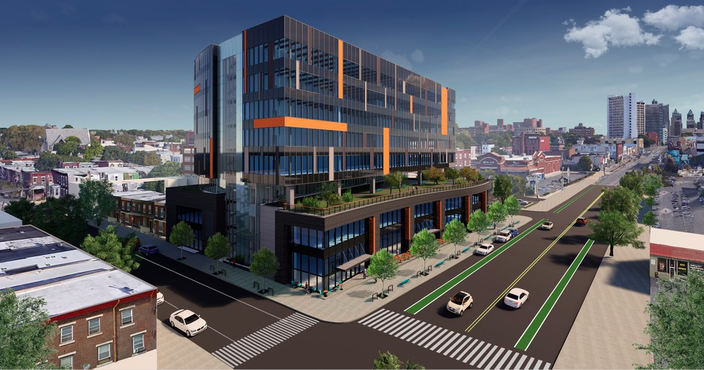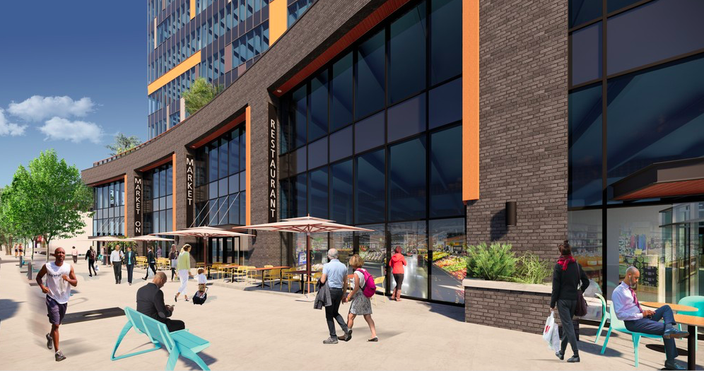
December 02, 2020
 Source/The Sheward Partnership
Source/The Sheward Partnership
3.0 University Place is a 250,000-square-foot life sciences building planned at 4101 Market Street in West Philadelphia. The project aims to support the city's reputation as a world leader in cell and gene therapies and connected health.
A pair of Manhattan-based developers will partner with University Place Associates to develop a state-of-the-art life sciences building in West Philadelphia.
Silverstein Properties and Cantor Fitzgerald announced plans Wednesday for 3.0 University Place, a 250,000-square-foot lab and office building at 4101 Market Street. The location is a federal Qualified Opportunity Zone and a Keystone Opportunity Zone, both incentive-based programs intended to spur economic development in distressed communities.
The eight-story lab, designed by The Sheward Partnership, will include ground-floor retail, curated wet/dry lab space and an incubation co-working floor operated by Ben Franklin Technology Partners. The building will also include a dedicated floor for prebuilt 3,000-10,000-square-foot “Growth Pod,” offering three- to five-year leases for graduate students and smaller-scale companies.
The Wistar Institute, a leading biomedical research firm in Philadelphia, will be one of 3.0 University Place's lead tenants, the developer said.
 Source/The Sheward Partnership
Source/The Sheward Partnership Source/The Sheward Partnership
Source/The Sheward Partnership“3.0 University Place will connect some of the world’s finest scientific companies, academic and industry partners, and entrepreneurs – including The Wistar Institute and Ben Franklin Technology Partners,” said Anthony Maher, President of University Place Associates. “These organizations are dynamic examples of how Philadelphia is creating a community of scientists whose collaborations will go far beyond the walls of a new building.”
The project, expected to open in the fourth quarter of 2022, will create 410 construction jobs and generate 215 operations jobs upon completion. Its economic impact during construction is estimated to be $221 million, representing 1,270 direct and indirect jobs.
The anticipated economic impact for every year in operation is $309 million, representing 1,340 jobs, the developers said.
“This major investment in our city is further proof that Philadelphia is the epicenter for cell and gene therapy research – an industry that is of critical importance as it continues to grow and contribute to our city and region’s economy," said Sylvie Gallier Howard, Philadelphia's acting commerce director.